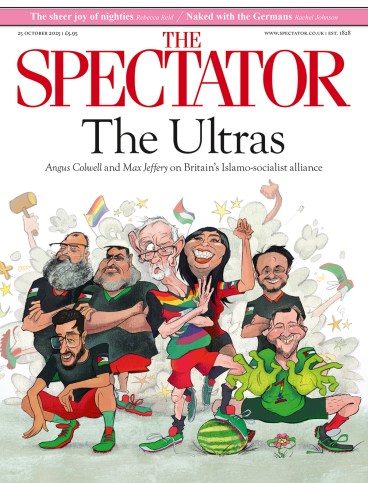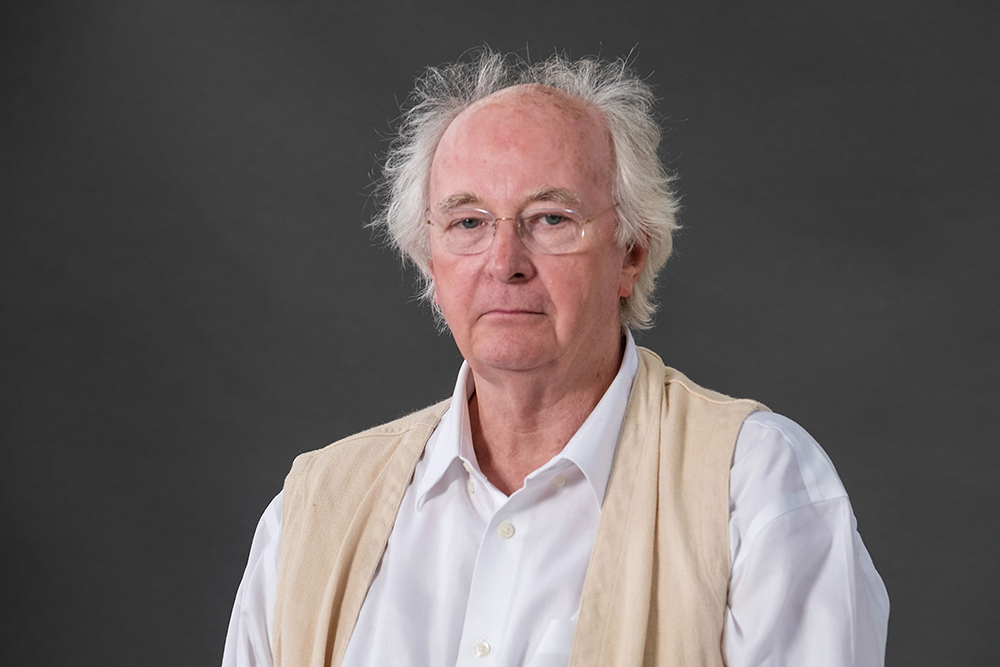
In the middle of The Rose Field, the third volume of Philip Pullman’s The Book of Dust trilogy, Lyra has a conversation with an angel about storytelling. What matters most in a dream, says Lyra, is not information but emotion. It reads like Pullman’s own manifesto: the power of the His Dark Materials and Book of Dust novels is how much they make us feel – about the tie between characters and their daemons, the fear of Lyra’s sinister mother Mrs Coulter, the love between Will and Lyra, the protectiveness of the courageous pot boy Malcolm Polstead…
The driving emotional force that carries us through The Rose Field is our desire to see Lyra and her daemon Pan reconciled. The previous book, The Secret Commonwealth, published in 2019, ended with a painful rift between Lyra and her daemon. In this one, Pan explains it thus: ‘For [Lyra] the world was rich with meaning and alive with delight. Then little by little this way of seeing left her, so I set off to find it and bring it back.’ Pan’s quest for Lyra’s lost imagination takes him on an eastward journey, through Turkey, Syria, Azerbaijan, across the Caspian Sea and into another universe, and Lyra is heading the same way, looking for Pan.
There are also forces of evil in pursuit of Lyra, led by the President of the Supreme Council of the Magisterium, Marcel Delamare, who not only wants to destroy her but is also on a mission to close the openings between worlds we learnt of in The Subtle Knife by blowing them up. In the first trilogy the Magisterium represented religious oppression. But, the world having changed since that was published, we now feel a different emphasis in its authoritarianism: it declares a state of emergency to suspend civil law; it pollutes the air and destroys the seasons; it displaces innocent people to profit from property development; it incarcerates them in camps. It works alongside a corporation, Thuringia Potash, that cares only about making money.
Meanwhile, the incidents and inventions pile up. There are murders, imprisonments and escapes. There are spies, characters who are not what they pretend to be, and a young man with an unexpected connection to Lyra. There are very smelly and dangerous vulture-like creatures called oghab-gorgs. There is a castle full of gryphons with a queen obsessed with accumulating gold. There are revelations of past affairs evolving into friendships. There is a sorcerer who has to be destroyed to free a gryphon from being young forever. And there are revelations about family connections between good characters and bad ones.
And there is the question of Malcolm, who loves Lyra, 11 years his junior. He and Lyra travel for a while with each other’s daemons, and we wonder if anything will ever undermine Lyra’s eternal love for Will…
Lyra also talks to the angel about telling stories herself: ‘I used to tell lies but I shaped them like stories… I put in just the right amount of detail so the person listening could see what I was describing in their mind’s eye without being overwhelmed by things that didn’t matter.’ In the 620 pages of this book it is hard not to feel that sometimes this goal has been missed: that the reader does get overwhelmed with detail. Occasionally there are descriptions (‘she was about average height, or perhaps a bit shorter’) that are not as telling as you might wish. And the narrative is an accumulation of episodes that often create a spark of feeling – of hope, or fear, or wonder – before moving on to another confusingly discrete incident. This is a book to read slowly, possibly making notes to keep track, and holding your nerve that the episodes will link together meaningfully.
Slow reading rewards the reader with such flashes of observation as these: Malcolm, greeting a gryphon, ‘had to hope that the stiff impassive ferocity glaring back at him would understand his courtesy. It was rather like trying to communicate with a coat of arms.’ Or this, of another character: ‘A look that would have made a basilisk avert its eyes and shift its feet uneasily.’
There are also teasing conversations about the central concepts of Pullman’s two trilogies: Dust, the secret commonwealth, imagination, in which, surely deliberately, Pullman substitutes clear explanations of what these mean with ambiguities. He chooses to leave us with plenty to think about, and questions rather than answers.







Comments